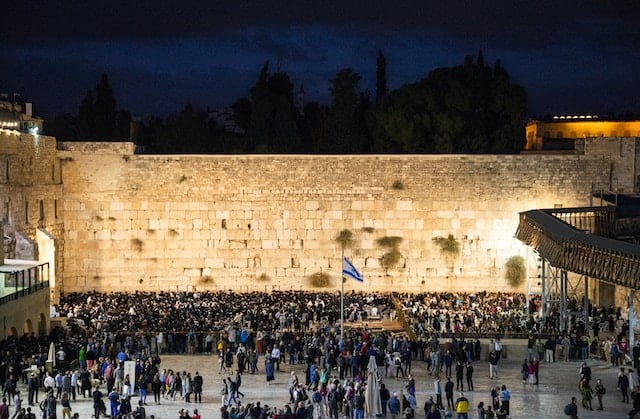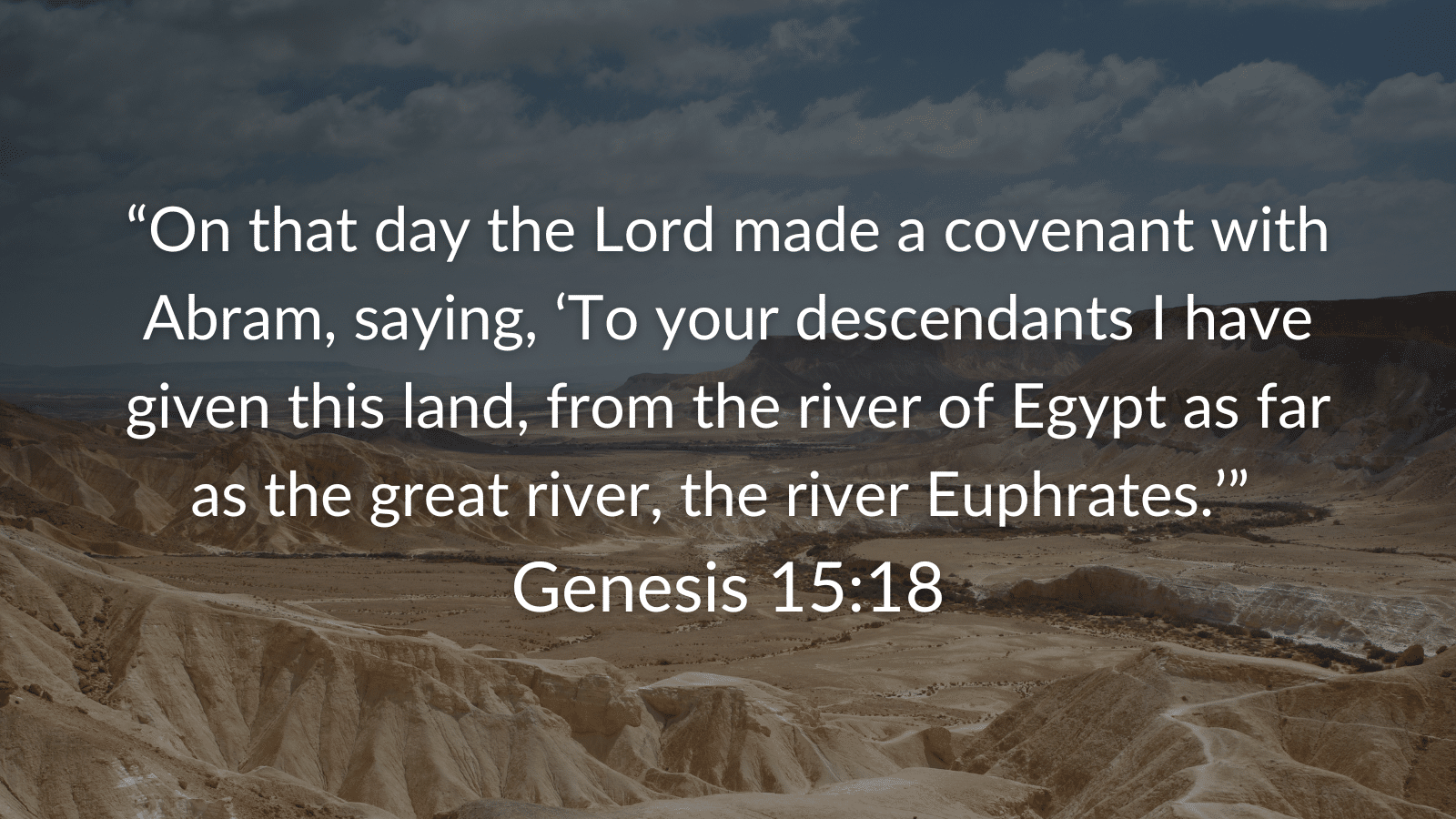Israel—past, present, and future—is central to the biblical story. Christians, though, hold many different views on Israel’s future. God called a particular nation through whom He brought His Word into the world. But what does this legacy mean for Jewish people today and in the days to come? We affirm the statement of the Alliance for the Peace of Jerusalem. Affirmation number twelve asserts:
We affirm that God will keep His promises to Israel, that one day “all Israel will be saved” by turning to Jesus, and the Messiah Jesus will return to establish His kingdom for Israel and all the nations of the world with blessings for all (Isaiah 2:1–4, 11:6–12; Romans 11:11–15, 25–29; Matthew 23:37–39).
Now, let us delve into the biblical evidence about Israel’s future.
God’s Faithfulness to His Promises
God made numerous promises to Jewish people, including the promise to send the Messiah, which He fulfilled in Jesus. He also pledged to give a specific land to Abraham’s descendants through Jacob forever (Gen 15:18, 26:3). After bringing His people out of slavery in Egypt, He led the Israelites to this land of promise. Subsequently, as a result of centuries of idolatry, God allowed His people to endure a period of exile. Still, God promised to regather the chosen people to their land after being scattered because of disobedience (Ezekiel 22:15–16; 36:22, 24). Some returned after the Babylonian captivity, but many others remained outside the Promised Land in dispersion (diaspora in Greek, which is how it is known today). For centuries, most Jewish people lived in the Diaspora. The emergence of modern Israel in 1948 drastically shifted this dynamic. Today, more than half of Jewish people live in Israel.
The ongoing regathering of Jewish people to Israel is a sign of the truthfulness of the Bible and the faithfulness of God. God’s commitment to provide His people an “everlasting possession” remains in force today (Genesis 17:8; see also Zechariah 12:9–11; Luke 21:20, 24; Acts 1:6). We see evidence of the promised return in our day, but this vision will only come full circle when the Messiah Jesus returns. He will return to reign from David’s throne over Israel and the nations (Isaiah 1:1–11). Then, Israel will dwell peacefully within her biblical borders (Genesis 15:18). At every point in salvation history, the land promise remains active and relevant.
Salvation for All Israel
Israel’s future also includes the glorious day when God will save all Jewish people living at the time. The apostle Paul wrote, “For I do not want you, brethren, to be uninformed of this mystery . . . that a partial hardening has happened to Israel until the fullness of the Gentiles has come in; and so all Israel will be saved” (Romans 11:25–26a). This statement does not refer to all Jewish people throughout all time. Nor does it mean being a descendant of Jacob is sufficient alone to grant one eternal life. Salvation only comes through the Messiah (John 3:16–21). What Paul means is, at some point in the future, national Israel will recognize Jesus as the Messiah and be saved (Zechariah 12:10). This corporate turning of Israel to Jesus will lead to His return. Theologian Robert H. Mounce explains Romans 11:25–26 this way:
Paul was saying that beyond the current period of Israel’s unbelief there would come a time when believing Jews would turn to Christ in faith. They would join the faithful remnant and believing Gentiles to complete the family of God, which stretches throughout all of redemptive history. From the standpoint of the twentieth century, that time is yet future.[1]
Messiah Jesus’ Return and Establishment of His Kingdom
The prophet Zechariah also wrote about national Israel coming to Jesus. He envisioned a day when Jewish people in Jerusalem, surrounded by nations seeking their destruction, would recognize Jesus as the pierced Messiah. As Zechariah foretold:
And in that day I will set about to destroy all the nations that come against Jerusalem. I will pour out on the house of David and on the inhabitants of Jerusalem, the Spirit of grace and supplication, so that they will look on Me whom they have pierced; and they will mourn for Him, as one mourns for an only son. (Zech 12:9–10)
This event sets the stage for Messiah Jesus to return and defend Jewish people. After vanquishing His enemies (Revelation 19:11–13), He will establish His kingdom for Israel and all nations. His reign will bring blessings to the entire world. He will rule with perfect justice. War, mourning, and death will be no more. No wonder some of the last words in the whole Bible are, “Amen. Come, Lord Jesus” (Rev 22:20). May His return come soon!

Photo by Sander Crombach on Unsplash.
Blessings for the World
God’s promises to Israel benefit not only His people but all nations. Zechariah and Paul affirm Israel’s future salvation and the Messiah’s kingdom in Jerusalem will bring blessings to the world (Zech 8:13, 22–23; Romans 11:12, 15). John’s vision in Revelation further depicts people from every nation and language worshiping the Lord in the New Jerusalem (Rev 7:9–10). Those from every people group will enjoy the greatest blessing of all—knowing the Messiah Jesus. In this way, Israel’s vocation to bless “all the families of the earth” will come full circle (Genesis 12:3). Jewish and Gentile believers, united in one Spirit, will exalt the Savior together.
In anticipation of this future day, we yearn for the united worship of every nation under the rule of Jesus the Messiah in the New Jerusalem. Until then, our prayers persist for the peace of Jerusalem and all of Israel (Psalm 122:6).
Published on January 3, 2024.
Header photo by NASA on Unsplash.
[1] Robert H. Mounce, Romans: An Exegetical and Theological Exposition of Holy Scripture, ed. E. Ray Clendenen, vol. 27, The New American Commentary (Nashville: Broadman and Holman Publishers, 1995), 225.




